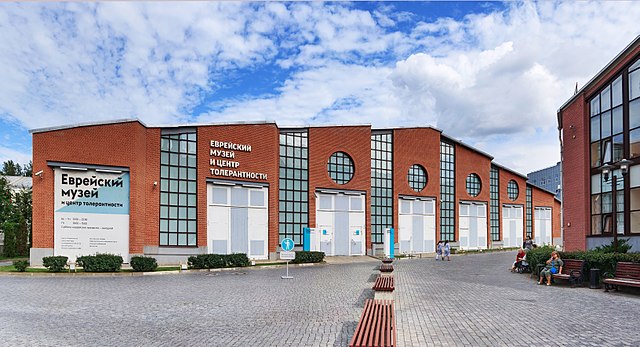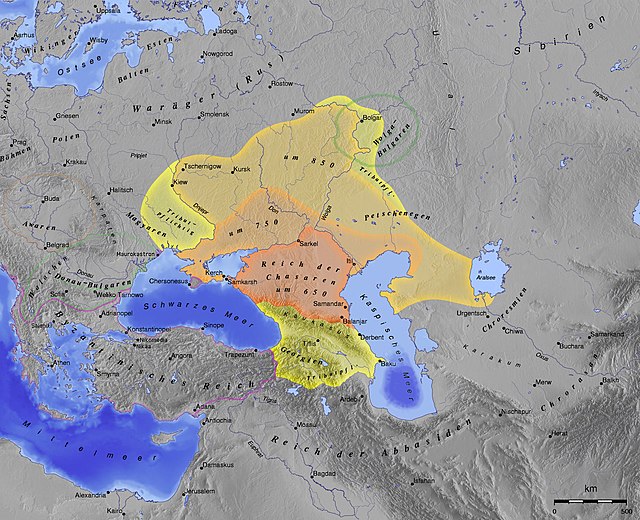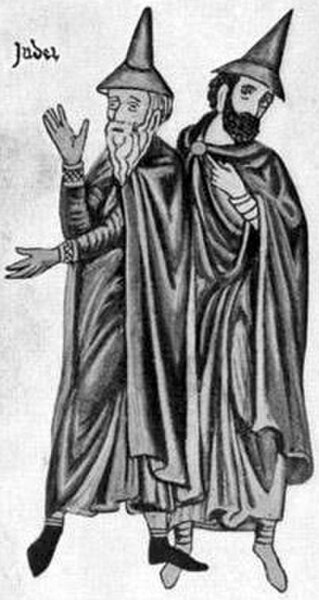History of the Jews in Russia
The history of the Jews in Russia and areas historically connected with it goes back at least 1,500 years. Jews in Russia have historically constituted a large religious and ethnic diaspora; the Russian Empire at one time hosted the largest population of Jews in the world. Within these territories, the primarily Ashkenazi Jewish communities of many different areas flourished and developed many of modern Judaism's most distinctive theological and cultural traditions, while also facing periods of antisemitic discriminatory policies and persecution, including violent pogroms. Some have described a "renaissance" in the Jewish community inside Russia since the beginning of the 21st century; however, the Russian Jewish population has experienced precipitous decline since the dissolution of the USSR which continues to this day, although it is still among the largest in Europe.
The Jewish Museum and Tolerance Center in Moscow, the largest Jewish museum in Russia.
The Khazar Khaganate (650–850)
Peter Shafirov, vice-chancellor of Russia under Peter the Great
Shneur Zalman of Liadi, founder of Chabad Lubavitch, 1775
History of the Jews in Europe
The history of the Jews in Europe spans a period of over two thousand years. Jews, an Israelite tribe from Judea in the Levant, began migrating to Europe just before the rise of the Roman Empire. Although Alexandrian Jews had already migrated to Rome, a notable early event in the history of the Jews in the Roman Empire was the 63 BCE siege of Jerusalem.
Jews of Germany, 13th century
Pogrom of Strasbourg by Emile Schweitzer
Sultan Bayezid II sent Kemal Reis to save the Arabs and Sephardic Jews of Spain from the Spanish Inquisition in 1492, and granted them permission to settle in the Ottoman Empire
Interior of the Portuguese Synagogue, Amsterdam in 1695 by Romeyn de Hooghe








